A scapegoat for a lame duck president
Updated: 2014-11-28 07:23
By Shen Dingli(China Daily USA)
|
||||||||
US Secretary of Defense Chuck Hagel has resigned, becoming the first victim of the Democrats' loss in the mid-term election. President Barack Obama, many believe, thinks it's time to revamp his national security, especially because after assuming office in 2009, he has been reluctant to use the armed forces in resolving any crisis. Even Russia's handling of the South Ossetia and Abkhazia crisis in 2008 did not prevent Obama from "resetting" Washington's relations with Moscow after he entered the White House.
Given the pressure from the Senate not to be militarily involved in Libya in 2011, he withdrew US forces two days after launching air attacks on Muammar Gaddafi's army. And despite the Iranian nuclear issue dragging on for about a decade, Obama refused to push the envelope and, instead, opted for negotiations. Besides, he has responded very cautiously to the Syrian crisis.
The same logic explains the lack of effective US diplomacy in dealing with the Ukraine crisis and Obama's unwillingness to send US combat troops back to Iraq to take on the Islamic State.
These decisions, or the lack of them, did not have much to do with the Pentagon. But someone had to face the music to justify the impending changes in the US security policy for the rest of Obama's term in office. Thus Hagel became the scapegoat.
Hagel was not the primary policymaker in Washington; he mostly resonated Obama's decisions and was largely responsible for implementing his policies. Besides, he had been crippled by the loss of about $100 billion a year in the defense budget for the past two years, which antagonized his generals. On one hand, the US armed forces have become increasingly demoralized. On the other, the Republican-dominated Congress has become more intolerant of the budgetary sequestration that has led to a decline in US dominance in different regions of the world.
The departure of Hagel, however, cannot help much with the reshaping of Obama's policy contour for the next two years. Even if Obama became more assertive in the Middle East and East Europe to reconcile his differences with the Congress, it is highly unlikely that he would confront Russia militarily and to send US ground forces back into Iraq to take on the IS. Such actions are not politically realistic or appealing. Instead, they could thwart Obama's fiscal balancing.
So, no matter who succeeds Hagel, the US is likely to remain occupied in the Middle East and Ukraine with little time and resources left to push forward the "pivot to Asia" policy. Obama will obviously defend his next appropriation request, possibly without any more deep cuts in the defense budget, and protect his healthcare program. But on both issues, he is likely to be confronted by the Congress.
The Congress, on its part, would be more concerned about the rise of China and agree in principle to work with the White House to make the "pivot to Asia" policy a success. But for a US on the decline, it would become increasingly difficult to dominate the Asia-Pacific region, the Middle East and Europe at the same time. In fact, Washington could inadvertently push Beijing and Moscow to forge a stronger strategic partnership.
Compared with the burning issues such as the IS and the Ukraine crisis, China's rise at most poses a mid-term challenge to the regional balance of power. The "pivot to Asia" policy of Obama seems poised to hedge against the potential change in the status quo, rather than not allowing China to rise in accordance with international laws.
While Beijing and Washington differ on the applicability of some of these laws, they have already agreed to prevent incidents at high sea, as demonstrated at the meeting between President Xi Jinping and Obama on the sidelines of the recent Asia-Pacific Economic Cooperation conference in Beijing. Still the two countries have a lot to reconcile to avoid incidents within the exclusive maritime economic zone. Therefore, the new secretary of defense is likely to follow Hagel's path to work with Chinese leaders to ally each other's security fears.
The author is a professor and associate dean at the Institute of International Studies, Fudan University, Shanghai.
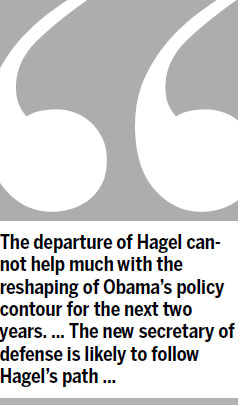
(China Daily USA 11/28/2014 page16)

 Daredevil dancer conquers mountain
Daredevil dancer conquers mountain
 Chinese float gives joy at Macy's parade
Chinese float gives joy at Macy's parade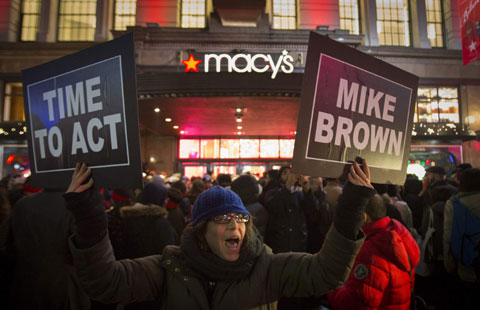
 Calm comes to troubled Ferguson
Calm comes to troubled Ferguson
 6 things you should know about Black Friday
6 things you should know about Black Friday
 Visa change may boost tourism to the US
Visa change may boost tourism to the US
 China's celebrity painters
China's celebrity painters
 Beauty of Beijing float making debut in Macy's parade
Beauty of Beijing float making debut in Macy's parade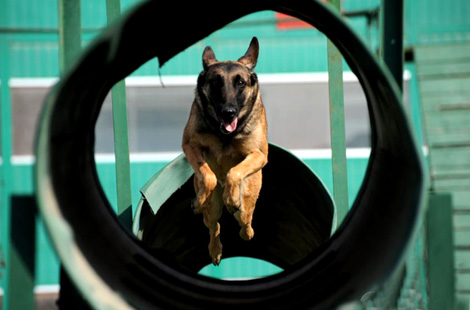
 Rescue dogs show skills in NW China
Rescue dogs show skills in NW China
Most Viewed
Editor's Picks
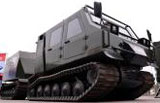
|

|

|
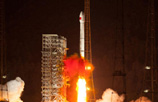
|

|

|
Today's Top News
China, US fight terror on the Internet
How to give is focus of philanthropy forum
China, US diverge on approaches to nuclear energy
China's local govt debt in spotlight
Macy's looks to appeal to more Chinese customers
Clearer view of Africa called for
Cupertino, California council is majority Asian
BMO Global Asset Management Launches ETFs in Hong Kong
US Weekly

|

|








